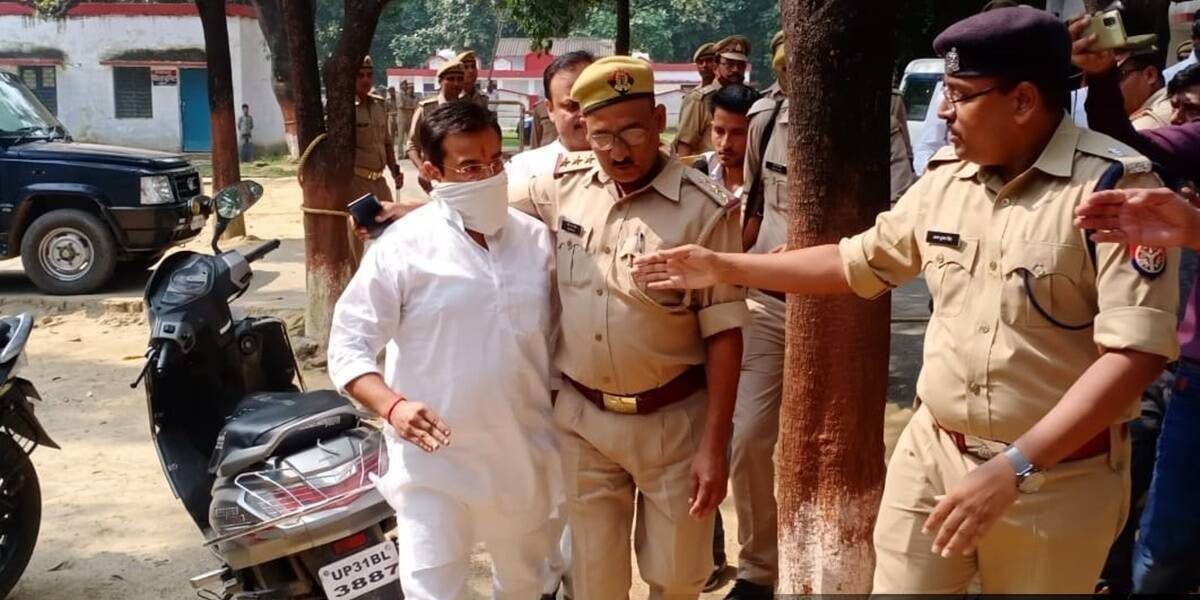Violence in Lakhimpur Kheri: The Supreme Court awards Ashish Mishra an eight-week interim bail.

Wednesday, the Supreme Court granted Ashish Mishra interim bail for eight weeks in the Lakhimpur Kheri violence case and ordered that he not reside in Uttar Pradesh or the National Capital Territory of Delhi during this time.
On October 3, 2021, four anti-farm legislation demonstrators were killed when a convoy of vehicles, including one belonging to Ashish Mishra’s father and Minister of State for the Home, Ajay Mishra, ploughed over them. In the ensuing fighting, two BJP activists, the driver of one of the vehicles, and a journalist were also slain.
A court of Justices Surya Kant and J K Maheshwari also granted interim bail to the four farm law protesters — Guruwinder Singh, Kamaljeet Singh, Gurpreet Singh, and Vichitra Singh — charged in the other FIR regarding the killing of the BJP activists and the driver.
The Supreme Court stated, in response to Mishra’s petition against the Allahabad High Court’s ruling granting him bail, “We are aware of the grave allegations levelled against the petitioner, but procedural fairness norms demand that these claims be established in trial procedures. In the present case, the petitioner has been detained for over a year and charges have been filed. Due to the considerable amount of oral and written evidence that the prosecution is permitted to present in both cases, in addition to the defence’s evidence, if any, the trial cannot be anticipated to complete so quickly.”
The court stated, “We concur with your concerns regarding the fairness of the trial and the impartiality of the behaviour of the law enforcement agency. We are consequently of the opinion that it will be necessary to strike a compromise between the petitioner’s Article 21 liberty rights and the state’s right to secure a fair trial and protect the legitimate cries of crime victims.”
The court continued, “in light of two diametrically opposed accounts, both substantiated by their respective investigation findings, we are not inclined to issue a decisive conclusion about the petitioner’s right to seek normal release at this time. Rather, we will keep these processes waiting by giving interim directives in the interest of justice and on an experimental basis to see if the state’s and the informant’s fears are founded.
The Supreme Court ordered that Ashish Mishra be freed on temporary bail for an initial period of eight weeks, pending the trial court’s approval of his bail bonds.
“In order to prevent any direct or indirect impact on the material witnesses who have not yet testified, the petitioner is directed to leave the state of Uttar Pradesh within one week of his release on interim bail,” the court ruled.
It stated that Mishra “must not remain in Uttar Pradesh or the National Capital Territory of Delhi during interim bail” and that he “shall notify the trial court and the jurisdictional police station his place of residence during the duration of interim bail.”
The defendant is required to report to the local police station once per week, and he must turn over his passport to the trial court within one week of his release.
The judgement said that “any attempt by the petitioner, his family, or his supporters to directly or indirectly influence or threaten the witnesses shall result in the revocation of temporary release.” It was also stated that the prosecution, the Special Investigations Team (SIT), any informant, or any family member of a victim of a crime will be permitted to swiftly notify the court of any misuse of interim bail.
According to the document, the petitioner must present before the trial court on each day of the hearing, and no postponements may be requested on his behalf. If he is shown to be extending the trial, the court will consider that a valid reason to revoke his interim bail. The order specified that he “must not enter the state of Uttar Pradesh unless to appear in court.”
The court also noted that there are two independent FIRs with different narratives, but that the incident’s place of occurrence and substance are identical.
“Only after a full-fledged trial will the aggressors responsible for the sad and horrific incident be determined,” the court stated, adding that it was also granted interim release to the four farm law protesters implicated in the other FIR.
“As a natural corollary, and in the exercise of our suo moto constitutional powers, we extend the benefit of temporary bail to the defendants in the other version as well…
“Therefore, it is ordered that the four accused…who have been arrested and whose bail applications are currently stated to be pending before the High Court of Judicature at Allahabad shall be released on interim bail pending further orders, subject to the provision of bail bonds satisfactory to the trial court,” the order stated.
In addition, the bench ordered the trial court to prioritise the deposition of protected witnesses, followed by other key witnesses. The Supreme Court also ordered the defendants and their attorneys to cooperate fully with the trial court and requested that the trial court submit it a progress report after each hearing date, along with a list of witnesses interviewed on each day.



